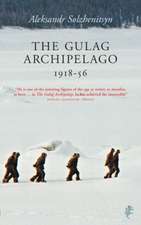The Politics of Exile in Latin America
Autor Mario Sznajder, Luis Ronigeren Limba Engleză Paperback – 16 dec 2015
| Toate formatele și edițiile | Preț | Express |
|---|---|---|
| Paperback (1) | 322.89 lei 6-8 săpt. | |
| Cambridge University Press – 16 dec 2015 | 322.89 lei 6-8 săpt. | |
| Hardback (1) | 816.03 lei 6-8 săpt. | |
| Cambridge University Press – 28 apr 2009 | 816.03 lei 6-8 săpt. |
Preț: 322.89 lei
Nou
Puncte Express: 484
Preț estimativ în valută:
61.79€ • 66.07$ • 51.52£
61.79€ • 66.07$ • 51.52£
Carte tipărită la comandă
Livrare economică 18 aprilie-02 mai
Preluare comenzi: 021 569.72.76
Specificații
ISBN-13: 9781316501122
ISBN-10: 1316501124
Pagini: 386
Dimensiuni: 157 x 236 x 20 mm
Greutate: 0.54 kg
Editura: Cambridge University Press
Colecția Cambridge University Press
Locul publicării:New York, United States
ISBN-10: 1316501124
Pagini: 386
Dimensiuni: 157 x 236 x 20 mm
Greutate: 0.54 kg
Editura: Cambridge University Press
Colecția Cambridge University Press
Locul publicării:New York, United States
Cuprins
1. Defining the Exilic Condition; 2. Forceful Displacement, the Construction of Collective Identities and State Formation; 3. The Format of Exile; 4. Sites of Exile; 5. Widening Exclusion and the Four-Tiered Structure of Exile; 6. Exile Communities, Activism and Politics; 7. Presidents in Exile; 8. Is Return the End of Exile?
Recenzii
'The Politics of Exile in Latin America offers a wide-ranging and integrative comparative study of political translocation that has taken place from the early nineteenth century during the period of independence to the 1960s and 1970s when the continent was gripped by a series of authoritarian dictatorships that forced millions abroad. Sweeping in scope yet detailed in its examination of different periods in the history of political exile, the authors offer an original interpretation of the continuities and changes that occurred as dissidents and outsiders were forced to leave their countries. This comprehensive and qualitative study examines Latin America, including Brazil, and the Caribbean as a whole and offers historians, social scientists, and the interested reader the most insightful and inclusive overview of this subject to date.' James N. Green, Brown University
'The Sznajder–Roniger duo go from strength to strength. After their definitive Legacy of Human Rights Violations in Latin America they have now produced a work that lays the basis for a whole new area of inquiry - the study of political exile. Painting a vast and even enthralling canvas, they demonstrate with a wealth of detail, arresting narrative, and statistical analysis that exile has been a structural feature of Latin American politics ever since colonial times and that, far from being a footnote in the lives of politicians, it has been central to the evolution of political ideas and to the building of political careers. A remarkable achievement.' David Lehmann, Cambridge University
'This book shows how a familiar and commonplace image (the Latin American president who flees as protestors surge into his palace) can be converted from an anecdote into an empirically robust and theoretically well-grounded social-scientific general principle. In place of broad assertions about the 'political culture' of an entire subcontinent, it provides a sharply focused and historically informed analysis of one key regularity in the political behavior of national leaders across this large and diverse region. Exile politics offers an alternative to the gulag and to uncontrollable civil conflict. This pattern is deeply rooted in Latin America but almost entirely absent from the Anglophone world. It is recognized and taken into account by the entire political community and persists after democratization as well as under authoritarian rule. Professors Sznadjer and Roniger have made a real breakthrough in the study of comparative political behavior.' Lawrence Whitehead, Nuffield College, Oxford
'The Sznajder–Roniger duo go from strength to strength. After their definitive Legacy of Human Rights Violations in Latin America they have now produced a work that lays the basis for a whole new area of inquiry - the study of political exile. Painting a vast and even enthralling canvas, they demonstrate with a wealth of detail, arresting narrative, and statistical analysis that exile has been a structural feature of Latin American politics ever since colonial times and that, far from being a footnote in the lives of politicians, it has been central to the evolution of political ideas and to the building of political careers. A remarkable achievement.' David Lehmann, Cambridge University
'This book shows how a familiar and commonplace image (the Latin American president who flees as protestors surge into his palace) can be converted from an anecdote into an empirically robust and theoretically well-grounded social-scientific general principle. In place of broad assertions about the 'political culture' of an entire subcontinent, it provides a sharply focused and historically informed analysis of one key regularity in the political behavior of national leaders across this large and diverse region. Exile politics offers an alternative to the gulag and to uncontrollable civil conflict. This pattern is deeply rooted in Latin America but almost entirely absent from the Anglophone world. It is recognized and taken into account by the entire political community and persists after democratization as well as under authoritarian rule. Professors Sznadjer and Roniger have made a real breakthrough in the study of comparative political behavior.' Lawrence Whitehead, Nuffield College, Oxford
Notă biografică
Descriere
The Politics of Exile in Latin America provides a systematic analysis of exile as a mechanism of institutional exclusion and its historical development.








